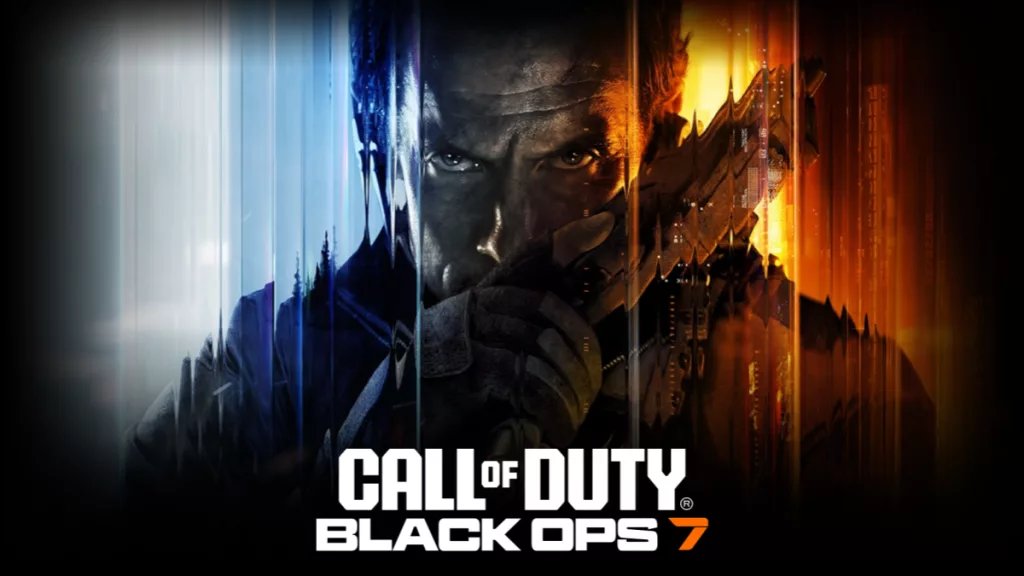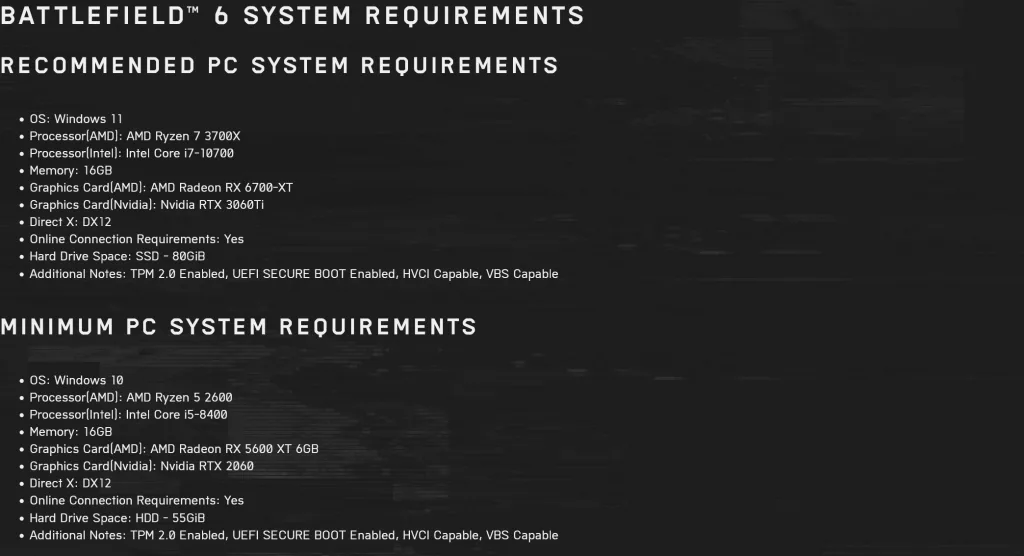
Game publishers EA and Activision Blizzard continue to seek ways to stop cheating by requiring users to enable hardware-based security features. Both Battlefield 6 and Call of Duty: Black Ops 7 are among a growing list of online games to require features such as secure boot, TPM 2.0, or HVCI. These features are supported by most modern motherboards/CPUs, and in the case of TPM 2.0, are required by Windows 11. They are intended to protect user data and prevent unauthorized processes from running. Game publishers are increasingly relying on these features in the hope that they can prevent cheat apps from running on systems when users play online games.
Battlefield 6 and secure boot
EA recently announced that players are required to use Secure Boot to play the newest game. Secure Boot is by no means a new feature, but it’s questionable how many PC users have it turned on; however, they will be required to do so if they want to play the upcoming game. According to its system requirements page, TPM 2.0 is also required, but it’s additionally possible that EA might add HVCI/VBS to the list of required security features as well, since both are listed as “capable” in the requirements.
Per EA:
“Requiring Secure Boot provides us with features that we can leverage against cheats that attempt to infiltrate during the Windows boot process. It also lets the Battlefield Positive Play team use its own features and related dependent security features like TPM to combat other forms of cheating, the most relevant of which include:
- Kernel-Level Cheats and Rootkits
- Memory Manipulation and Injection
- Spoofing and Hardware ID Manipulation
- Virtual Machines and Emulation
- Tampering with Anti-Cheat Systems
Any attempt to access Battlefield 6 without Secure Boot enabled will result in a prompt indicating its necessity.”

EA’s efforts to cut out cheating have had some impact, with it reporting that over 330,00 attempts have been blocked by its Javelin anti-cheat system in just 2 days, but there’s still work to be done. As reported by EA (via DSOG), players also reported on roughly 100,000 instances of potential cheaters, and a video showing what appears to be an auto-aiming cheat has already been posted online.
Call of Duty: Black Ops 7 TPM 2.0 and Secure Boot
Activision Blizzard also recently posted that it, too, will be requiring TPM 2.0 and Secure Boot to play Call of Duty: Black Ops 7. The RICOCHET anti-cheat solution is being updated per the new requirements and is being rolled out in Season 5.
Season 5 Spotlight Per Activision Blizzard:
- TPM 2.0 and Secure Boot: Strengthening game security with built-in Windows PC features
- Securing Your Account: Protect against account hijacking with email verification and 2FA features
- Game Pass Free Trial on PC: Updated policy to support fair competition in Ranked Play
- Detections Targeting Boosting and Teaming: Removing boosters and teamers from the game and leaderboards with a focus on Ranked Play integrity
- Advancing Cheat Prevention: Targeting 22 additional individuals with legal action; nearly 40 cheat vendors shut down since launch
- Community Questions: Additional details around two new security features, TPM 2.0 and Secure Boot
“With Season 05, Call of Duty will begin a phased rollout of two PC-based security features: TPM 2.0 and Secure Boot.
TPM 2.0 (Trusted Platform Module) is an industry-standard, hardware-based security feature built onto CPUs or motherboards that verifies the PC’s boot process has not been tampered with. Secure Boot makes sure a PC can only load trusted software when Windows starts.
Together, these features help #TeamRICOCHET ensure that players are starting the game from a secure, cheat-free foundation.”
-Activision Blizzard
Obviously, cheaters are always going to attempt to find ways to end run any countermeasures. It’s a sad state of being, with some boldly showing that aimbots and cheat controllers can be used for PCs and consoles without the need for software overrides. One can only hope that publishers will continue their efforts to work with the community to rein this in.
